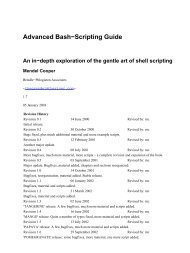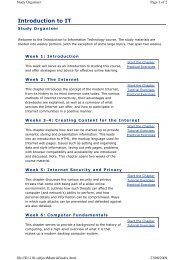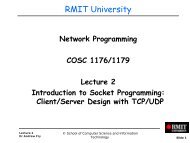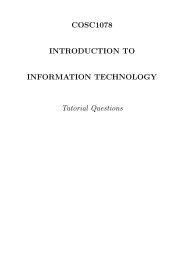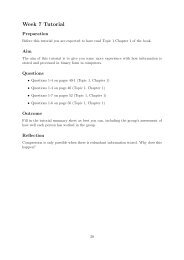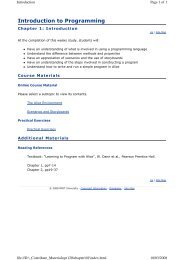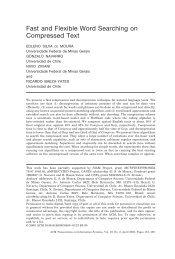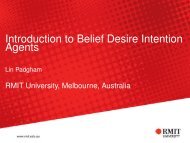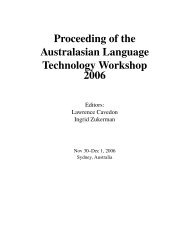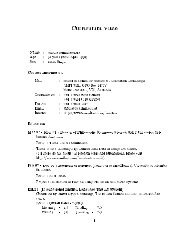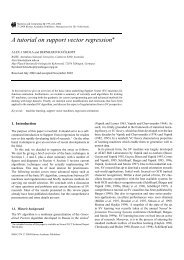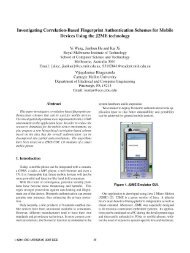The MBC information booklet - RMIT University
The MBC information booklet - RMIT University
The MBC information booklet - RMIT University
Create successful ePaper yourself
Turn your PDF publications into a flip-book with our unique Google optimized e-Paper software.
14.6.5 Why are the<br />
labs so<br />
packed when<br />
assignments<br />
are due?<br />
14.6.6 Should I keep<br />
a copy of any<br />
assignment I<br />
submit?<br />
14.7 At Risk<br />
14.7.1 What does it<br />
mean to be “at<br />
risk”?<br />
14.7.2 What is an “at<br />
risk” letter?<br />
14.8 Awards<br />
14.8.1 What awards<br />
can I obtain as<br />
part of my<br />
program?<br />
14.8.2 How do I<br />
obtain a<br />
degree/award<br />
with<br />
‘Distinction’?<br />
Chapter 14: Frequently asked questions<br />
This is because everyone seems to delay doing their assignments until the last minute.<br />
This is not a good idea. Murphy’s Law will invariably imply that a machine will go down on<br />
the day before an assignment is due. This is normal. Machines go down. Your schedule<br />
should accommodate this scenario. <strong>The</strong> moral: start early, finish early!<br />
In a word, “yes”. Always keep a separate electronic copy of all assignments submitted.<br />
“At Risk” students are defined as any of the following:<br />
• Anyone who has on two occasions failed the same major course within the program<br />
• Anyone who fails (or is likely to fail as identified from their mid-year progress) the<br />
equivalent of 50% or more of their total credit point enrolment in one academic year<br />
• Anyone whose progress through a program is likely to lead to failure to complete<br />
within the maximum time limit<br />
Students identified as being “at risk” are sent a letter by the School inviting them to attend<br />
an interview regarding their academic performance.<br />
<strong>The</strong> discussion and outcome of that interview will be documented. Students will be sent a<br />
follow-up letter advising of the outcome of the interview and possibility of exclusion if<br />
academic performance does not improve. Students will be advised of the various<br />
assistance options available to them.<br />
For more <strong>information</strong> on the <strong>University</strong>’s academic policies and procedures on this matter,<br />
go to http://www.rmit.edu.au/corporate-governance , click “<strong>RMIT</strong> Policies” and then<br />
“students” to check the “Student Progress” section.<br />
Within most of the Masters programs you can obtain intermediate awards such as a<br />
Graduate Certificate (after completing 4 approved courses) or a Graduate Diploma (after<br />
completing 8 approved courses). Graduate Diploma students can also obtain a Graduate<br />
Certificate within their program.<br />
Your enrolment will remain active even though you have obtained the award providing you<br />
are still enrolled in the ‘parent’ program.<br />
Students should refer to individual program plans to determine which are ‘approved’<br />
courses to obtain their intermediate award.<br />
Students who obtain an average result of 75 or more, including any failed results when<br />
applying for a Graduate Certificate or Graduate Diploma are eligible for an ‘Award with<br />
Distinction’.<br />
<strong>The</strong>re is no Master with Distinction.<br />
75



